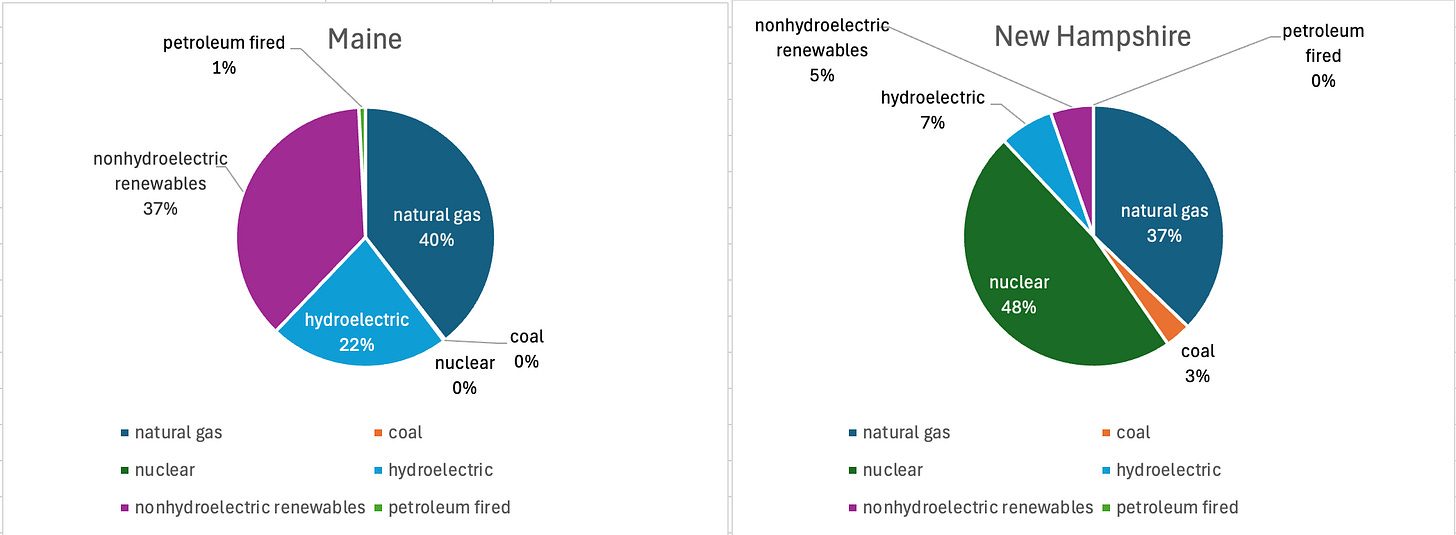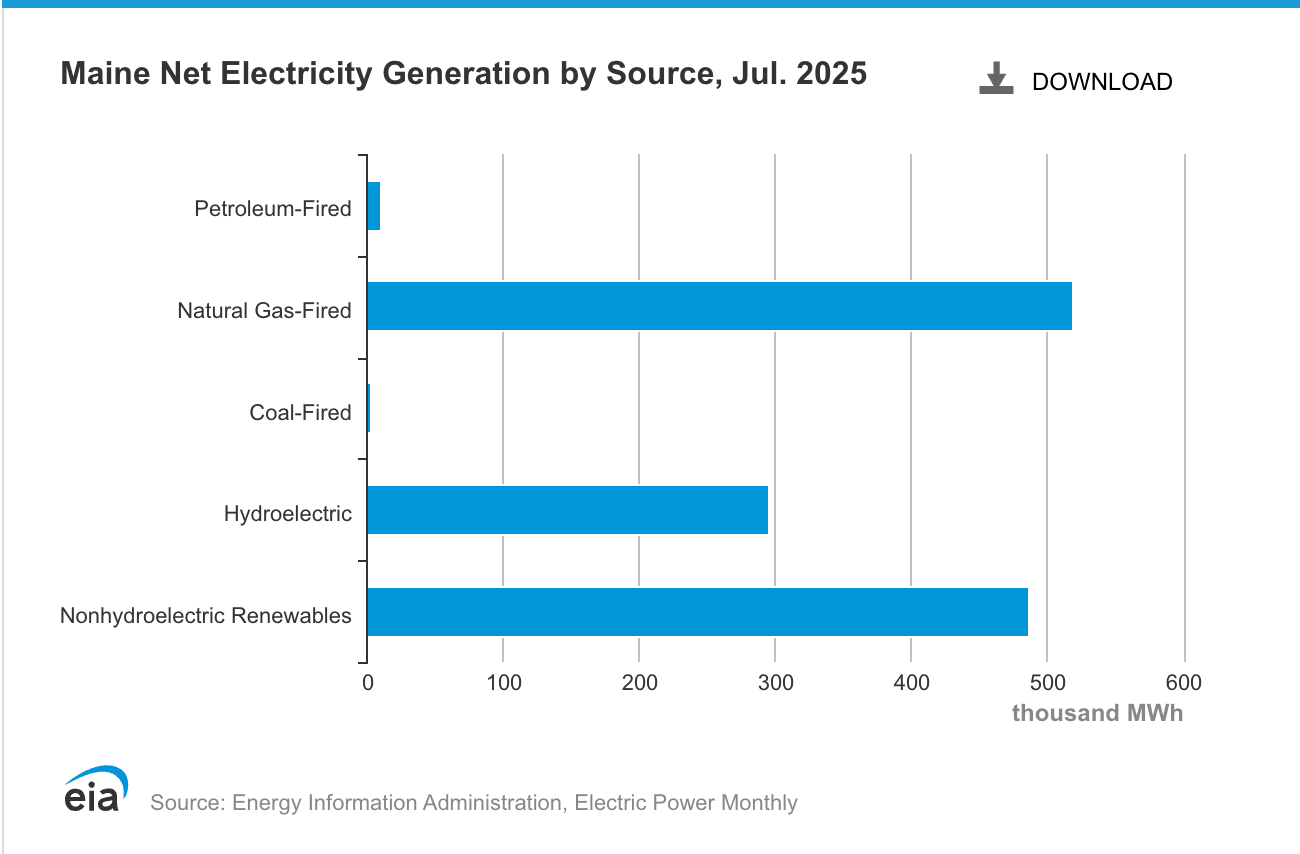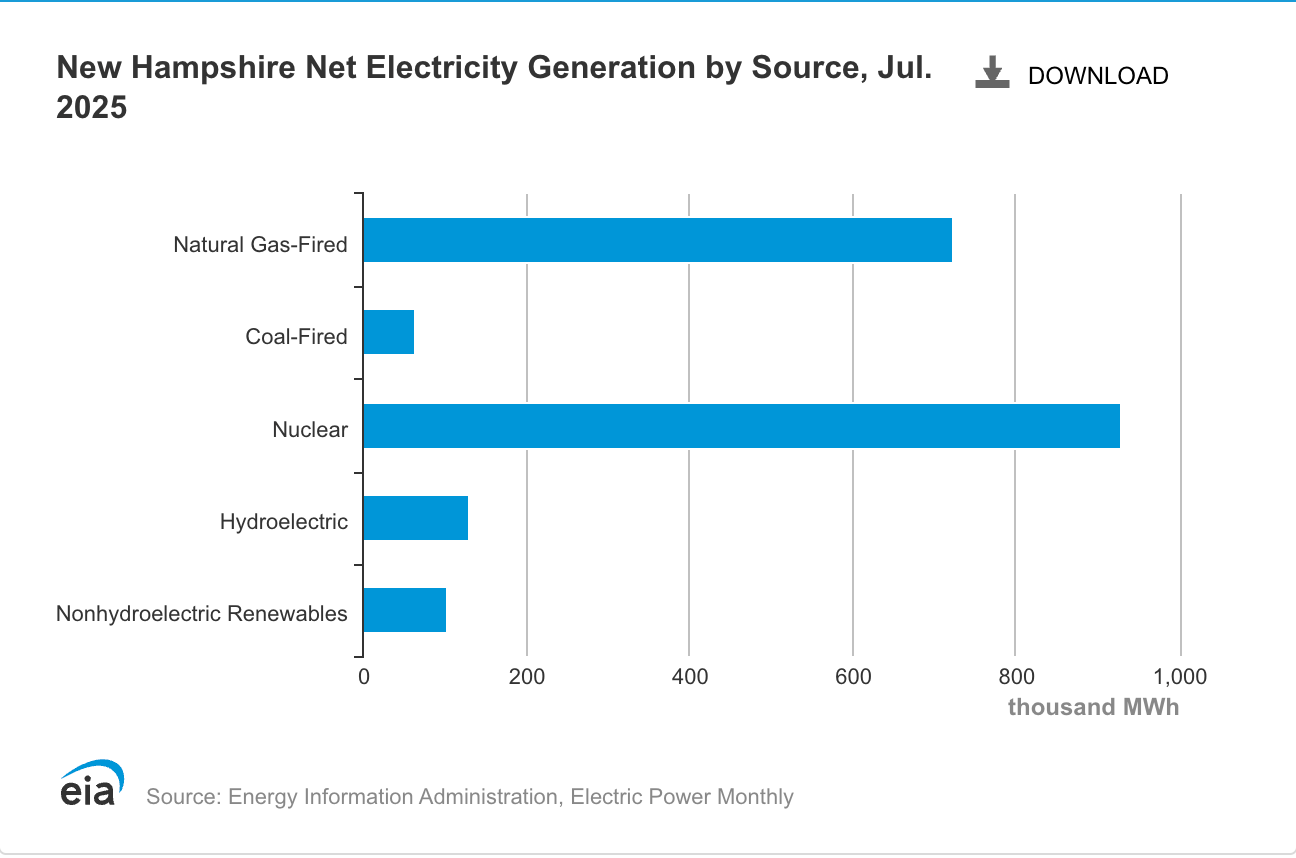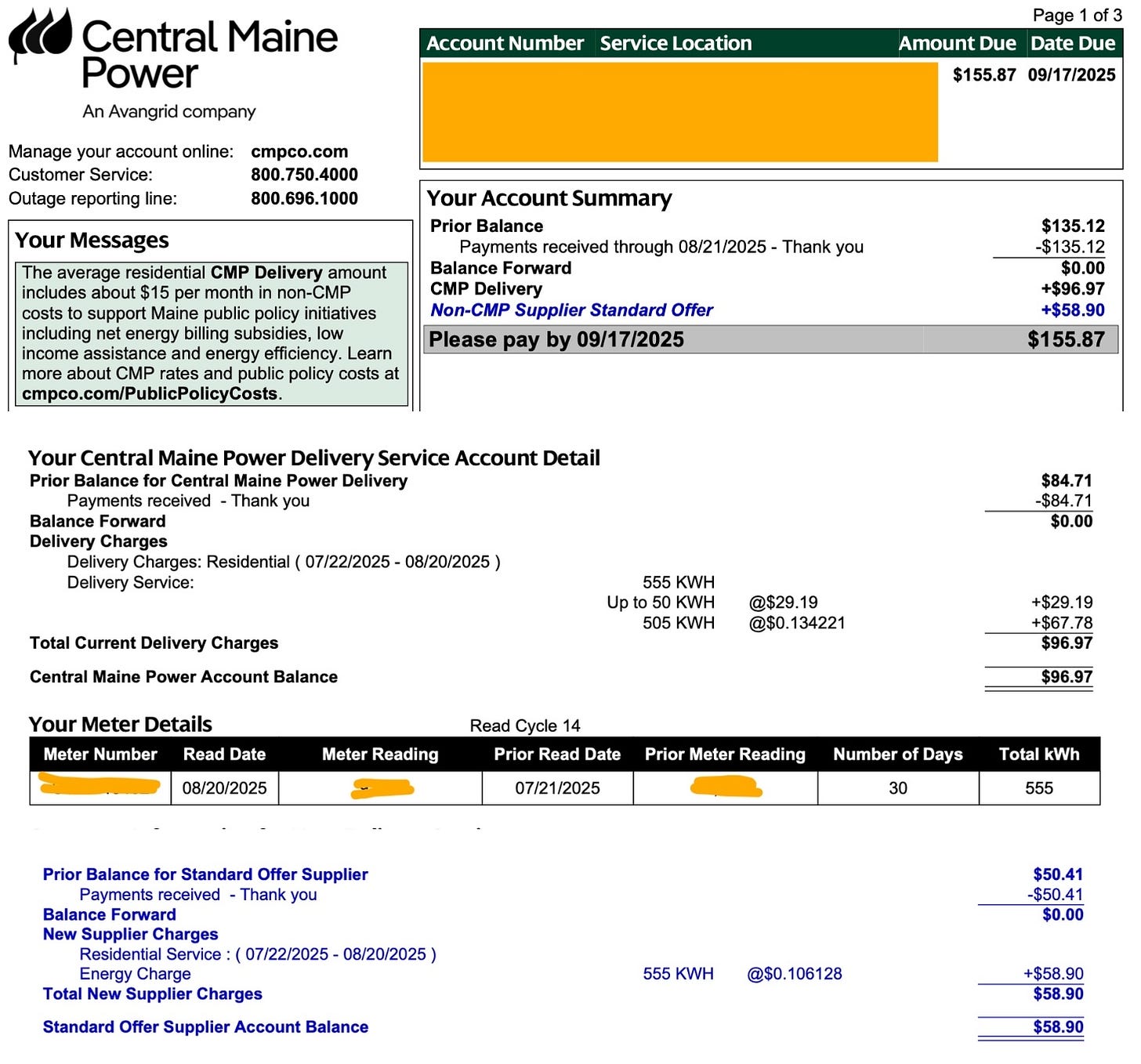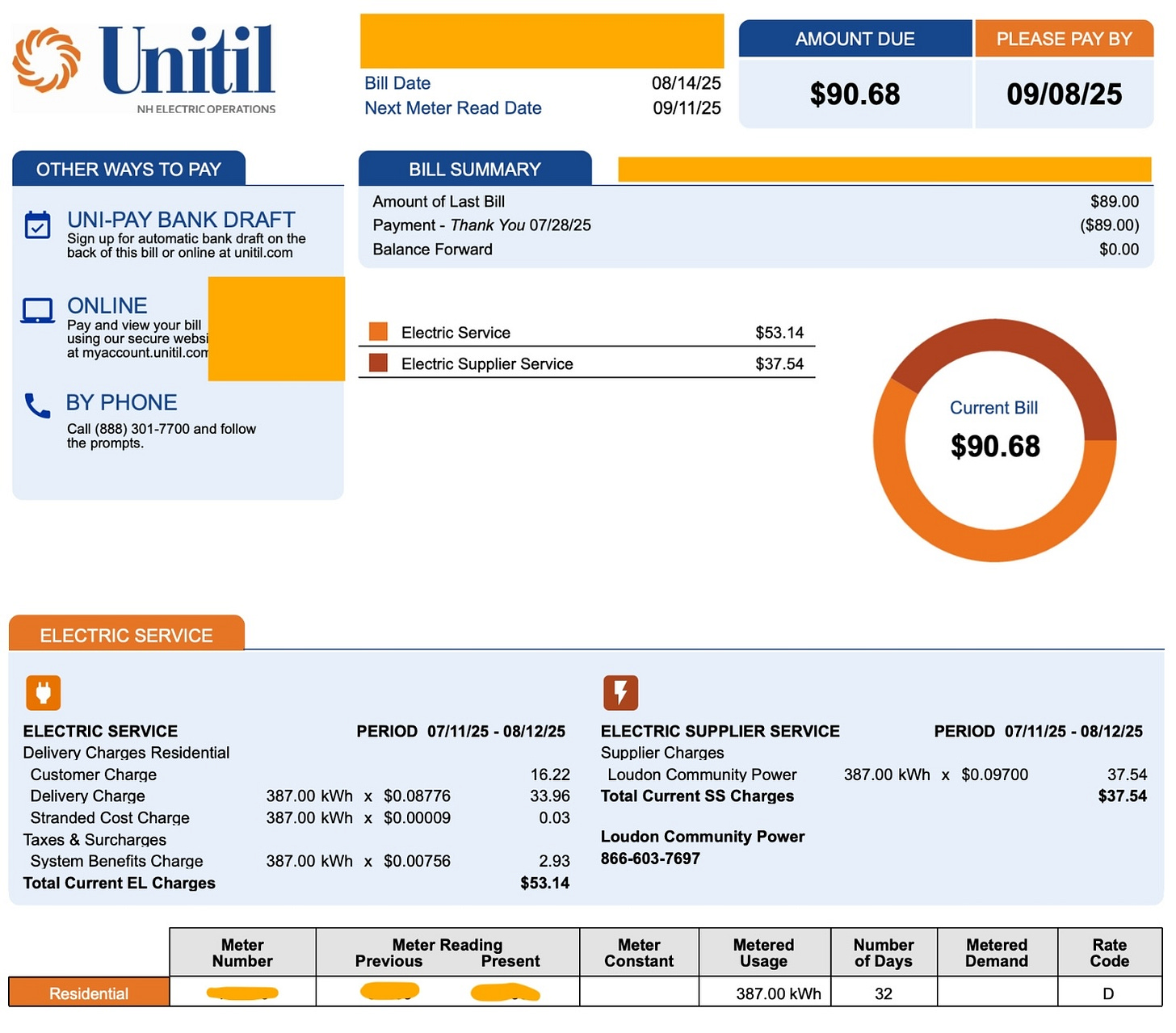What contributes to the Maine/ New Hampshire electricity cost difference?
NH residential electricity delivered was 83% the price of Maine last August.
There has been some commentary in press and on dockets that the increase in Maine electric costs is due to a natural gas pricing and exports.
Here is a quick, back of the napkin comparison of NH and Maine electrical generation and costs. My data points are from EIA (July 2025 generation) and residential electric bills.
caveats—generation strategies are NOT reflected directly in the electric bills of the same time period
This is simply a comparison of generation techniques and residential bill costs
Maine and NH use similar levels of natural gas electric generation (40%/37%)
The difference is how they make up the remainder (renewables v nuclear)—I personally am not a fan of nuclear and I’m not suggesting that is a great strategy—but Net Energy Billing as it played out in Maine has been a boondoggle.
Here’s the electric bill comparison:
All costs below are “costs to end-user residential consumer” as reflected in actual bills
The cost of electricity is similar (NH cost is 91% of the ME cost)
The real difference is in delivery charges. (NH cost is 79% of the ME cost)
The blended rate thus is 23 cents per kWh in New Hampshire, and 28 cents per kWh in Maine, (NH cost is 83% of the Maine cost)
Delivery charge is where policy choices end up
New Hampshire is also much denser than Maine in terms of population, meaning storm repairs go further
Sources and Data
Here is the electricity generation mix for July 2025 for both states, from EIA.gov.
Here are the bills:


